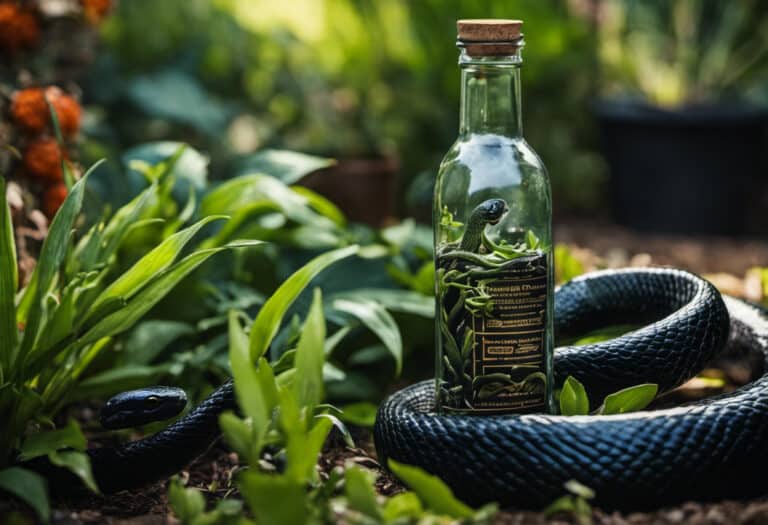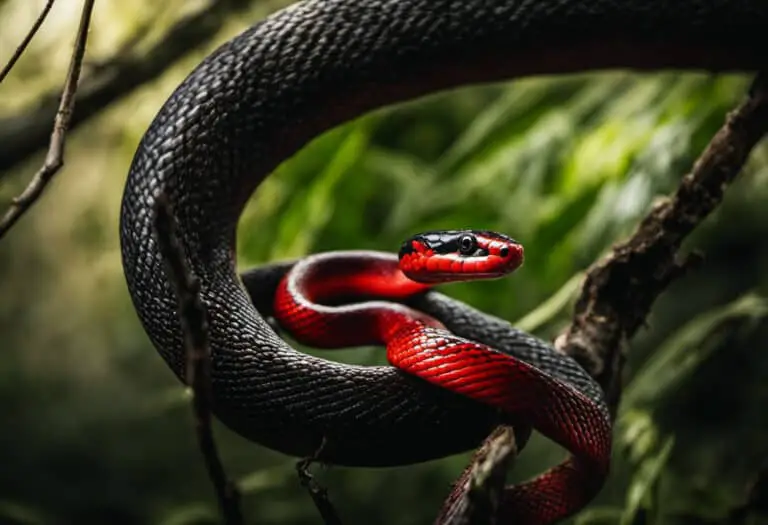Do Garter Snake Bites Hurt?
Have you ever wondered what it feels like to be bitten by a garter snake? Well, wonder no more. In this article, we’ll delve into the sensations and consequences of garter snake bites.
Don’t worry, though. These bites typically don’t cause much discomfort, as garter snakes are non-venomous. But it’s still important to understand the symptoms and potential allergic reactions.
So, join us as we explore the world of garter snake bites and shed light on these fascinating creatures.
Key Takeaways
- Garter snake bites typically cause mild discomfort
- Symptoms may include redness, swelling, and itchiness at the bite site
- Immediate medical attention is usually not necessary for garter snake bites
- Garter snake bites are generally not life-threatening
Symptoms and Effects of Garter Snake Bites
Garter snake bites may cause redness, swelling, and mild to moderate pain at the bite site. While the initial reaction can be uncomfortable, it’s important to note that garter snakes are non-venomous and their venom isn’t harmful to humans.
The saliva of garter snakes contains mild toxins which are used to immobilize their prey. However, these toxins don’t have any long-term effects on humans. In rare cases, allergic reactions may occur, but they aren’t common.
It’s important to properly clean the bite area with soap and water to prevent infection. Applying a clean bandage and using over-the-counter pain relievers can help alleviate discomfort. Seek medical attention if symptoms worsen or persist.
Garter snake bites are generally not life-threatening and complications are rare.
Treatment Options for Garter Snake Bites
If you experience a garter snake bite, it’s important to wash the bite area with soap and water and apply a clean bandage to prevent infection. Garter snake bite first aid is crucial in minimizing complications.
Here are some treatment options for garter snake bites:
-
Clean the bite area: Use soap and water to thoroughly cleanse the bite site to remove any dirt or bacteria that may cause infection.
-
Apply a clean bandage: Cover the bite with a sterile bandage to protect it from further contamination and promote healing.
-
Monitor for complications: Keep an eye out for signs of infection such as increased redness, swelling, or discharge from the bite site.
-
Seek medical attention if necessary: If symptoms worsen or persist, it’s important to consult a healthcare professional for further evaluation and treatment.
Preventing Garter Snake Bites
To prevent garter snake bites, it’s important to take necessary precautions.
When in snake-prone areas, wear long pants and closed-toe shoes to protect your lower extremities.
Additionally, clear debris and keep grass trimmed to discourage snake presence in your surroundings.
Protective Clothing in Garter Snake Areas
When in garter snake areas, it’s recommended to wear long pants and closed-toe shoes for protection. Wearing protective clothing has several benefits and helps to ensure your safety in garter snake habitats. Here’s why you should consider wearing the right clothing:
- Protection: Long pants and closed-toe shoes provide a physical barrier between your skin and the snake, reducing the risk of a bite.
- Prevention: By covering your legs and feet, you minimize the chances of a snake coming into direct contact with your skin.
- Awareness: Wearing appropriate clothing increases your awareness of the snake’s presence, reminding you to be cautious and avoid unnecessary contact.
- Peace of mind: Having the right protective gear gives you the freedom to explore garter snake areas without constantly worrying about potential bites.
Are Repellents Effective?
Using snake repellents in garter snake areas can be an effective way for you to reduce the chances of encountering these reptiles. But are repellents truly effective?
When it comes to garter snakes, repellents can provide some level of deterrence. However, it’s important to note that garter snakes aren’t aggressive and generally pose little threat to humans.
The best ways to avoid garter snake bites are to educate yourself and practice caution. Wear long pants and closed-toe shoes in snake-prone areas, avoid handling or provoking snakes, and clear debris to discourage their presence.
Additionally, using snake repellents or barriers in gardens or yards can help keep snakes away. Remember, garter snakes play a beneficial role in controlling pest populations, so it’s important to coexist peacefully with these harmless creatures.
Risks Associated With Garter Snake Bites
Garter snake bites pose minimal risks to human health. While they may cause redness, swelling, and mild pain, allergic reactions are rare.
It’s important to properly clean and treat the bite to prevent infection, but garter snake bites are generally not life-threatening.
Allergic Reactions to Garter Snake Bites
Allergic reactions to garter snake bites are rare, but it’s important to take them seriously and seek medical attention if you experience any symptoms. While garter snakes are non-venomous and their bites typically cause only minor discomfort, some individuals may have an allergic response.
Here’s what you need to know about allergic reactions to garter snake bites:
-
Symptoms: Allergic reactions may include severe swelling, difficulty breathing, hives, or dizziness.
-
Treatment: If you experience any of these symptoms, seek immediate medical attention. An allergic reaction can be serious and may require the administration of antihistamines or epinephrine.
-
Prevention: To reduce the risk of a garter snake bite, it’s important to practice snake safety. Avoid handling or provoking snakes, wear protective clothing in snake-prone areas, clear debris, and educate children about snake avoidance.
-
Importance: While allergic reactions are rare, it’s crucial to be aware of the potential risks and take appropriate measures to protect yourself and others.
Preventing Garter Snake Bites?
To prevent garter snake bites, remember to wear long pants and closed-toe shoes in snake-prone areas. Snake handling safety is crucial, especially when it comes to educating children about snake awareness. By teaching children about the potential risks and behaviors of garter snakes, they can learn how to coexist safely with these fascinating creatures.
Encourage children to avoid handling or provoking snakes, and to always seek adult supervision when encountering a snake. Additionally, it’s important to clear debris and keep grass trimmed to discourage snake presence in your surroundings.
Characteristics of Garter Snakes
Garter snakes have three long stripes running along their body, which are usually yellow or green in color. These stripes are a unique characteristic that helps identify garter snakes from other snake species.
In terms of habitats, garter snakes can be found in various environments such as grasslands, forests, wetlands, and even urban areas. They’re highly adaptable and can thrive in different conditions.
When it comes to behavior, garter snakes are active during the warmer hours of the day, particularly in the late spring and summer. They hibernate during winter and emerge from their dens to hunt and bask in the sun.
Garter snakes are non-aggressive and rarely bite unless provoked or threatened. They prefer to avoid confrontation and would rather slither away to safety.
Understanding Garter Snake Venom
You may be surprised to learn that garter snakes have mildly venomous saliva. While they aren’t considered dangerous to humans, their bites can cause minor complications.
Garter snake venom contains mild toxins that are used to immobilize their prey, such as small rodents and amphibians. When a garter snake bites, it may cause redness, swelling, and mild to moderate pain at the bite site. Some individuals may also experience itchiness and irritation. In rare cases, blisters may develop, and allergic reactions can occur, although they’re uncommon.
It’s important to note that garter snake venom doesn’t have long-term effects on humans. If you’re bitten by a garter snake, it’s recommended to wash the bite area with soap and water, apply a clean bandage, and seek medical attention if symptoms worsen or persist.
Frequently Asked Questions
Can Garter Snake Bites Cause Long-Term Health Effects?
Garter snake bites generally do not cause long-term health effects. Allergic reactions are rare, but possible. It is important to clean the bite properly to prevent infection. Seek medical attention if symptoms persist.
What Should I Do if I Get Bitten by a Garter Snake and I Am Allergic to Snake Bites?
If you’re allergic to garter snake bites, it’s important to seek medical attention immediately. First aid includes washing the bite area, applying a clean bandage, and taking over-the-counter pain relievers. Allergic reactions to garter snake bites can be serious.
How Can I Tell if a Garter Snake Is Venomous or Non-Venomous?
To identify if a garter snake is venomous or non-venomous, observe its characteristics. Look for three long stripes, gray/brown/black color, and a red and black forked tongue. Garter snakes prefer wooded areas near water sources as their habitat.
Are Garter Snakes More Active During the Day or at Night?
During the day, garter snakes are more active, preferring warmer hours like the afternoon. They leave their dens to hunt and bask in the sun. They have specific behavior patterns and habitat preferences.
Are There Any Specific Precautions I Should Take When Encountering Garter Snakes Near Water Sources?
When encountering garter snakes near water sources, it’s important to take safety measures and practice snake bite prevention. Stay aware of your surroundings, avoid provoking the snakes, and maintain a safe distance to prevent potential harm.
Conclusion
In conclusion, garter snake bites are generally harmless and cause minimal discomfort. While they may startle or surprise you, there’s no need to fear these non-venomous creatures. By understanding the symptoms, treatment options, and prevention techniques, you can confidently coexist with garter snakes in their natural habitats.
Remember, these slithering creatures play a vital role in balancing ecosystems, so let’s appreciate their fascinating characteristics and benefits. As the saying goes, ‘knowledge is power,’ and now you’ve the power to appreciate and respect garter snakes.






